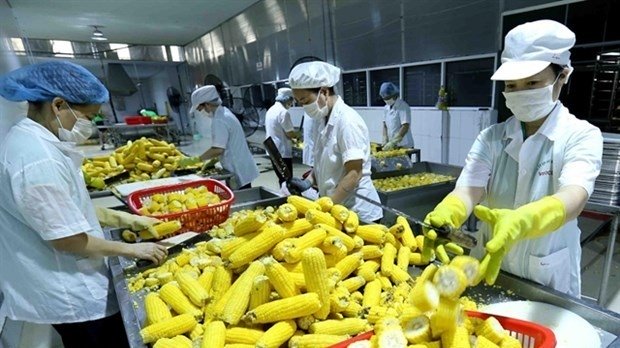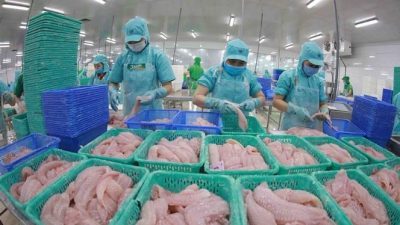
|
From the beginning of 2021 until now, the COVID-19 pandemic has continued to cause disruption to domestic consumption of agricultural products and exports to most countries around the world. |
|
Accordingly, in February 2021, congestion in the circulation of goods due to the COVID-19 pandemic left a large amount of vegetables harvested during the winter crop in Hai Duong, Hung Yen, Vinh Phuc and suburban districts of Hanoi partially redundant. The complicated developments of the pandemic have currently caused the consumption many agricultural products to face the risk of seeing low prices, such as Tam Hoa plums in the provinces of Lao Cai and Son La, purple sweet potatoes in Vinh Long Province, and mangoes in Khanh Hoa Province. In term of the export market, agricultural products are also facing many problems due to the increasing technical barriers from importing countries in the context of complicated developments of the COVID-19 epidemic. The shipments are now also requested meet the stricter requirements on food hygiene and disease safety. In addition, each country applies its own preventive measures, requiring each export shipment to comply with different regulations. It is not to mention that batch of imported frozen products must undergo COVID-19 test, causing delays in goods circulation. The pandemic has also posed certain obstacles to completing procedures for the signing of a protocol on exporting agricultural products to China, who are tightening their requirements on quality, traceability and disease safety. In the face of this situation, the Ministry of Agriculture and Rural Development has hosted nationwide online conferences, seminars, and meetings discussing removal of technical bottlenecks in order to boost farm produce consumption amid COVID-19. Functional authorities have also negotiated to reduce the requirements for quarantine of goods, launched venues to boost consumption of farm products, and supported enterprises in facilitating export activities and boosting consumption in the domestic market while providing guidance on the implementation of importers’ mandatory requirements on product quality and safety. These efforts have gradually been rewarded as most recently, China has agreed to allow Vietnam’s sweet potatoes to enter its market on the condition that all cultivation areas and packaging companies are inspected and apply technical measures to prevent the risk of the produce being infected by 10 harmful creatures. However, there is a fact that some key sweet potato growing provinces do not yet have packing facilities. Therefore, they are required to set up packing facilities as soon as possible to take hold of the export opportunities. The COVID-19 pandemic is forecasted to be prolonged with complicated development, which will certainly continue to affect the domestic consumption and export of agricultural products. Therefore, in the long term, localities, businesses and producers need to closely work with the functional agencies to complete technical dossiers of cultivation zones and packaging facilities in order to meet the specific requirements of export markets. At the same time, they must also take measures to prevent and control the COVID-19 epidemic to ensure the safety of production areas. Source: Nhan Dan Online |

